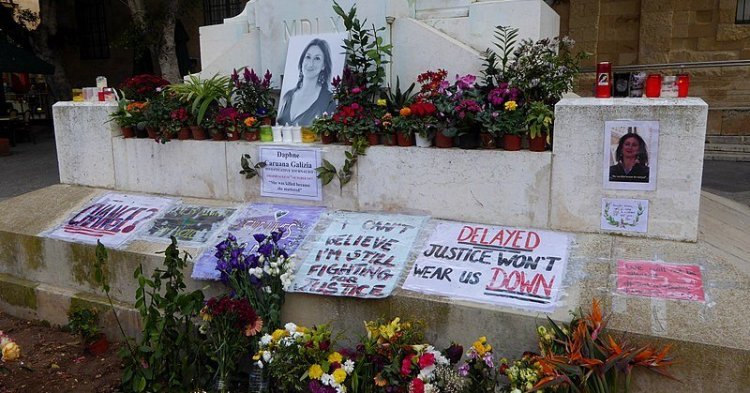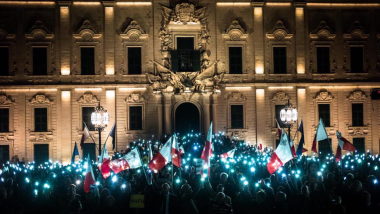Allegations of Corruption
The prevailing situation in Malta can be described as a buildup of events over a number of years with one main cause: corruption. The exposure of this intricate web of corruption involving senior members of Government mainly occurred thanks to Caruana Galizia, earning her the nickname of a “one-woman Wikileaks”. Through her blog Running Commentary, she exposed then Health and Energy Minister Konrad Mizzi and the Prime Minister’s chief of staff Keith Schembri as part of the Panama Papers leak. She revealed that they opened secret Panama companies in 2013, the year the current Government was first elected. Leaked emails linked them to 17 Black, a Dubai company allegedly intended to deposit funds in Mizzi and Schembri’s Panama companies. 17 Black, it was later revealed after Caruana Galizia’s assassination, was owned by Yorgen Fenech, a leading businessman and shareholder of Malta’s power station, commissioned by the same Government.
Despite the major outcry, Prime Minister Joseph Muscat protected both Mizzi and Schembri throughout the whole period. This status quo lasted until this past week, when Fenech was arrested as the suspected mastermind of Caruana Galizia’s assassination. Schembri and Mizzi subsequently resigned, with Schembri being arrested and later released. Meanwhile, the Prime Minister refused to resign and take responsibility for protecting persons who were so close to him and so evidently corrupt.
Malta’s Rule of Law in the spotlight
The smallest member state of the European Union with a population of just under 500,000, Malta has had a turbulent relationship with the rule of law these past few years. Yet, as Manfred Weber summarised, “The situation in Malta has consequences for the entire European project.” For this reason, the European Parliament this week decided to send a delegation to probe into the rule of law in the country and the independence of Malta’s judicial system as soon as possible. A damning report by the Venice Commission found that Malta is not a functioning democracy. Some of the most significant problems cited by the report were the Prime Minister wielding too much power, poor checks and balances and no effective separation of powers, with a judiciary which is effectively not independent due to the method of their appointment. The Government promptly insisted that it will implement the report’s recommendations. Yet since it came out, a number of magistrates and judges were still appointed at the Prime Minister’s behest.
This report paints a picture of state capture of Malta’s institutions, and includes media capture, both by the government and by businessmen with political links. Save for Caruana Galizia and a handful of other media sources, there was hardly anyone in the Maltese media capable of manifesting their own will or capable of effectively informing the public. Caruana Galizia’s family have always insisted that the culture of impunity reigning over Malta is the one which ultimately led to her assassination. The journalist’s constant vilification on government-friendly media led to personal threats and harassment from various people. Ultimately, this made her isolated and, without any form of police protection, she was an easy target.
What next?
For the first time in the past two years, there seems to be some significant progress in bringing the mastermind(s) of Caruana Galizia’s murder to justice. The question of the Prime Minister’s resignation is now merely a question of when not if. Although he has stated that he will resign after January 12th, protestors are still demanding his immediate resignation. The Prime Minister’s close relationship with suspects of the case and his potential influence over investigations means he must step down and be investigated himself as soon as possible. Ultimately, Muscat is an obstacle to justice, which must be seen to be done. The investigation of who was behind Caruana Galizia’s brutal assassination has to be solved before Malta can ever move on. Her final words still haunt the country: “There are crooks everywhere you look now. The situation is desperate.”


Follow the comments: |
|
